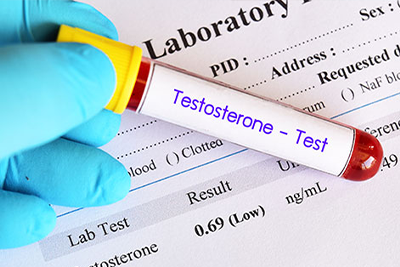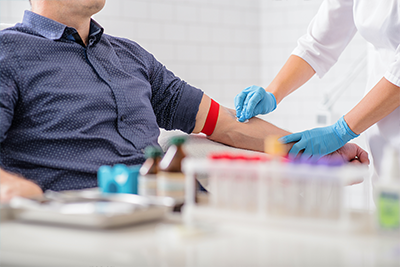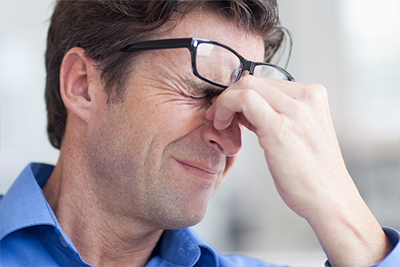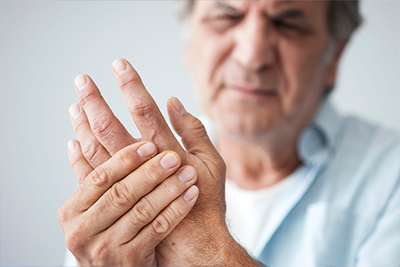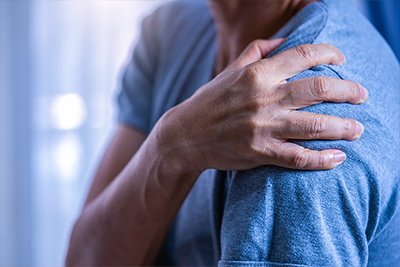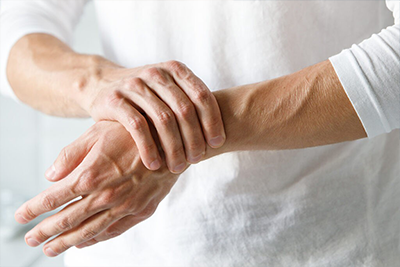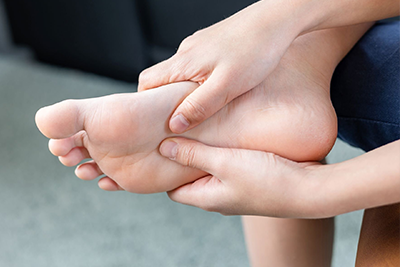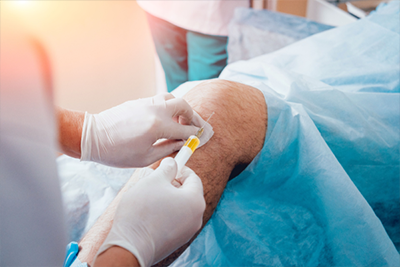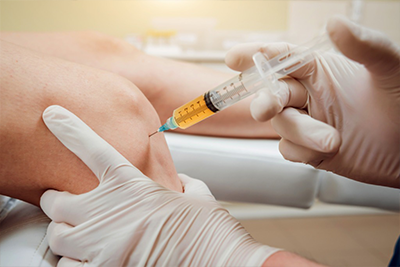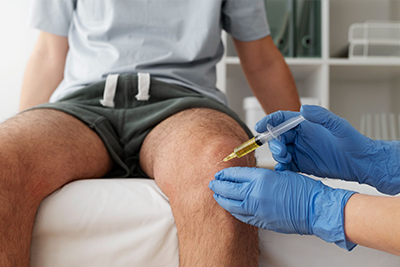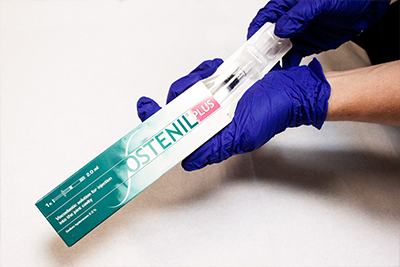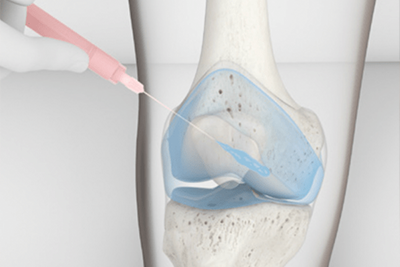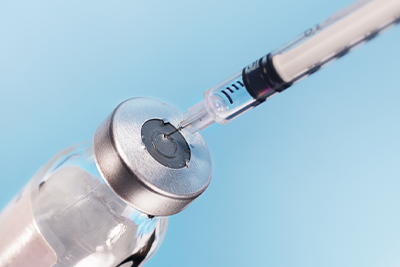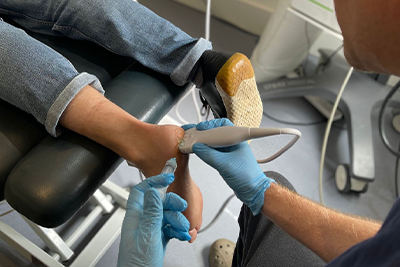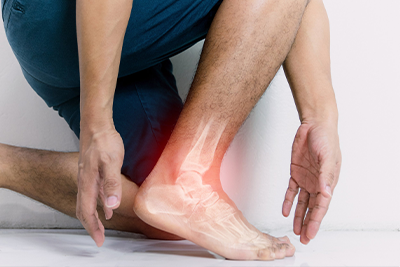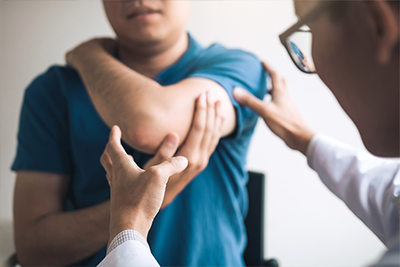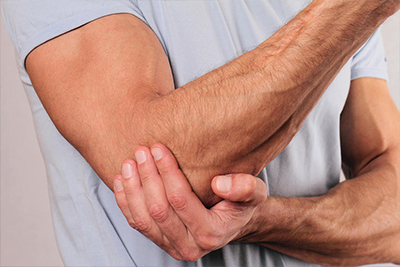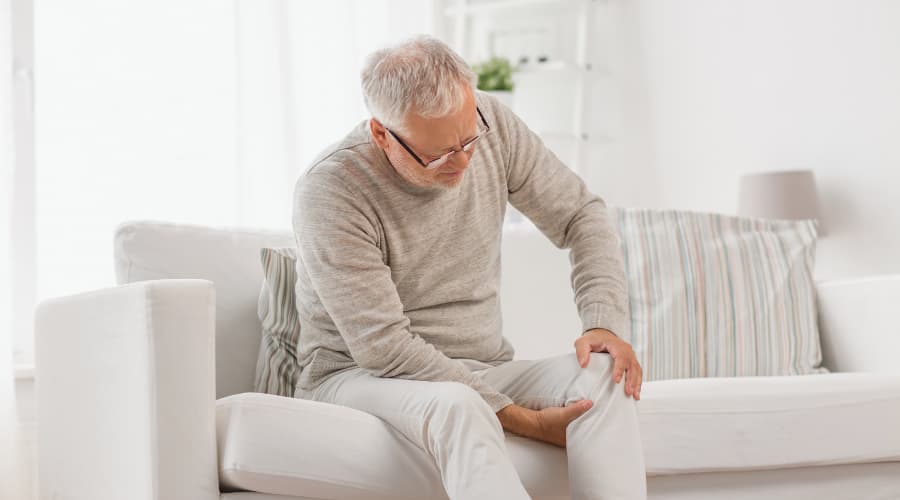Erectile dysfunction (ED), a prevalent concern among men, is often characterised by the inability to achieve or maintain an erection suitable for sexual intercourse. In the UK, this condition is not just a physical ailment; it’s increasingly recognised as a complex interplay of physiological and psychological factors. Recent statistics suggest that ED affects about one in five men in the UK, indicating its significant impact on men’s health and well-being.
Today, we want to cover a less discussed but equally critical aspect of ED – the psychological factors, particularly stress and anxiety. While physical causes like cardiovascular disease or diabetes are often highlighted, the role of mental health in ED is gaining attention. Stress and anxiety, prevalent in today’s fast-paced society, have been identified as key contributors to the onset and exacerbation of ED. They affect not only the mind but also have profound physiological impacts that can impair sexual function.
Understanding the relationship between stress, anxiety, and ED is crucial for developing comprehensive treatment approaches. This connection underscores the importance of addressing mental health as part of ED management and treatment. In the following sections, we will explore how stress and anxiety contribute to ED, their physiological mechanisms, and practical strategies for managing these psychological factors to improve erectile health.
Erectile Dysfunction Today
Erectile Dysfunction (ED) remains a significant health concern in the UK, affecting a considerable portion of the male population across various age groups. ED’s prevalence and demographic distribution are essential for recognising its broader impact on men’s health.
General Prevalence:
Current statistics indicate that ED affects approximately 20% of men in the UK, translating to about 4.3 million men. This figure highlights the widespread nature of the condition.
Age-Related Prevalence:
The prevalence of ED increases with age. While about 40% of men aged 40 are affected, this percentage rises to about 70% for men aged 70 and over. However, ED is not an inevitable part of ageing and can affect men at younger ages as well.
Younger vs Older Men:
ED is commonly associated with older age groups, but younger men are not immune. Recent trends show an increasing incidence of ED in younger men, potentially linked to lifestyle factors, stress, and mental health issues.
In men under 40, psychological factors are often a significant contributor to ED.
Impact Across the Lifespan:
ED can have a profound impact at any age, affecting not just sexual health but also mental well-being, relationships, and overall quality of life.
Mental and Emotional Health:
Beyond the physical implications, ED can lead to psychological distress, including anxiety, depression, and low self-esteem. The condition can also strain intimate relationships and impact social interactions.
Health Indicators:
Often, ED can be an early indicator of other health issues such as cardiovascular disease, diabetes, or hormonal imbalances, making it a crucial aspect of men’s health to monitor.
Lifestyle Factors:
The role of lifestyle factors, including diet, exercise, alcohol consumption, and smoking, in contributing to ED highlights the need for holistic health approaches.
The Stress-ED Connection
The relationship between stress and erectile dysfunction (ED) is a critical aspect of understanding the condition’s complexities. Chronic stress, a prevalent issue in today’s fast-paced society, can have profound implications for sexual function.
Impact of Chronic Stress on Sexual Function:
Psychological Impact:
Chronic stress can lead to mental health issues like anxiety and depression, which are closely linked to sexual dysfunction. The psychological burden of prolonged stress can diminish sexual desire and hinder sexual performance.
Effects on Libido:
Stress activates the body’s ‘fight or flight’ response, which can suppress functions not essential for immediate survival, including sexual drive and function. This can lead to a reduced libido, making sexual activity less appealing or satisfying.
Impact on Relationship Dynamics:
Chronic stress can strain relationships, creating an environment not conducive to intimate connections. Relationship issues, in turn, can exacerbate ED.
Physiological Mechanisms Linking Stress to ED:
Hormonal Changes:
Stress triggers the release of cortisol and adrenaline, hormones that can interfere with the body’s sexual response. Elevated cortisol levels can suppress testosterone production, an essential hormone for maintaining erectile function.
Vascular Effects:
Stress can lead to hypertension and arterial damage, both of which are risk factors for ED. Chronic stress impairs endothelial function, reducing the blood flow necessary for an erection.
Nervous System Impact:
Chronic stress can disrupt the balance between the sympathetic and parasympathetic nervous systems. An overactive sympathetic nervous system (responsible for the ‘fight or flight’ response) can inhibit the relaxation required for an erection.
Sleep Disturbances:
Stress often leads to sleep problems, which can affect testosterone levels and overall sexual health. Poor sleep quality has been linked to lower libido and erectile issues.
The Anxiety-ED Connection
Anxiety, both in its short-term and chronic forms, plays a significant role in erectile dysfunction (ED).
Differentiating Between Short-term and Chronic Anxiety:
Short-term Anxiety:
Short-term or situational anxiety often occurs in response to specific stressors, such as performance anxiety in intimate situations. This type of anxiety is usually temporary and resolves once the stressor is removed.
In the context of ED, short-term anxiety can disrupt erectile function temporarily, often manifesting as performance anxiety.
Chronic Anxiety:
Chronic anxiety is a persistent state of anxiety that can be related to generalised anxiety disorder (GAD), panic disorder, or other long-term psychological conditions.
This ongoing state of heightened anxiety can have a more lasting and profound impact on erectile function, often exacerbating ED over time.
The Impact of Anxiety Disorders on Erectile Function:
Psychological Impact:
Anxiety disorders can lead to a constant state of worry or fear, affecting mood, libido, and sexual performance. The fear of not being able to achieve or maintain an erection can itself become a self-fulfilling prophecy, contributing to ED.
Physiological Mechanisms:
Anxiety activates the sympathetic nervous system, leading to the release of adrenaline and other stress hormones. These hormones can constrict blood vessels, reducing blood flow to the penis, which is crucial for achieving an erection.
Chronic anxiety can also lead to changes in brain chemistry that affect sexual desire and function.
Impact on Overall Health:
Chronic anxiety is often associated with other health issues like high blood pressure and heart disease, which are known risk factors for ED. It can also lead to unhealthy coping mechanisms like smoking or excessive alcohol consumption, further impacting erectile health.
Interference with Treatment:
Anxiety can also interfere with the effectiveness of ED treatments. Men with anxiety disorders may find that while physical therapies can address the physiological aspects of ED, the psychological components may still pose challenges.
Psychological vs. Physical Causes of ED
Both psychological and physical factors can influence Erectile Dysfunction (ED). Identifying whether ED is predominantly caused by psychological factors like stress, anxiety, or physical issues is a crucial step in tailoring the proper treatment approach.
Balancing Psychological and Physical Factors:
Interconnected Causes:
Often, ED does not have a singular cause but results from a combination of both psychological and physical factors. For example, a physical condition might lead to ED, which then causes anxiety, further exacerbating the problem.
Psychological Causes:
Psychological factors contributing to ED include stress, anxiety, depression, relationship problems, and performance anxiety. These issues can interfere with the brain’s ability to send signals necessary for initiating an erection.
Physical Causes:
Common physical causes of ED include cardiovascular disease, diabetes, hormonal imbalances, neurological disorders, and side effects of certain medications. These conditions can impair blood flow, nerve function, or hormone levels, critical for erectile function.
Identifying Stress or Anxiety-Related ED:
Symptom Onset and Situational Factors:
ED that is primarily stress or anxiety-related often has a sudden onset and might be situational, occurring only in specific circumstances. This contrasts with physical causes, where ED tends to develop gradually and consistently.
Assessment of Mental Health:
Evaluating mental health is vital. If a man is experiencing high levels of stress, anxiety, or depression, and there are no significant physical health issues, the ED is likely psychologically rooted.
Lifestyle and Relationship Factors:
Factors such as recent life stressors, changes in relationship dynamics, or lifestyle changes should be considered. These can often give clues as to whether ED is stress or anxiety-related.
Response to Treatment:
Men with psychologically induced ED may respond well to psychological therapies, lifestyle changes, or counselling without the need for medical interventions aimed at physical causes.
Managing Stress and Anxiety to Improve ED
Effectively managing stress and anxiety is a critical component in the treatment of erectile dysfunction (ED) that is psychologically rooted. A combination of lifestyle modifications, coping strategies, and psychological therapies can significantly improve symptoms and enhance overall well-being.
Lifestyle Modifications and Coping Strategies:
Regular Physical Activity:
Exercise is a potent stress reliever. Activities like brisk walking, running, or swimming can reduce stress hormones and increase endorphins, improving mood and reducing anxiety.
Mindfulness and Relaxation Techniques:
Meditation, deep breathing exercises, and yoga can help calm the mind and reduce stress, positively impacting ED.
Adequate Sleep:
Ensuring sufficient and quality sleep is crucial as sleep deprivation can exacerbate stress and anxiety, worsening ED.
Healthy Diet:
A balanced diet, rich in fruits, vegetables, whole grains, and lean proteins, can improve overall health and aid in the management of ED.
Reducing Alcohol and Stop Smoking:
Both excessive alcohol consumption and smoking can contribute to ED. Reducing alcohol intake and quitting smoking can significantly improve erectile function.
Psychological Therapies:
Cognitive Behavioural Therapy (CBT):
CBT is a highly effective therapy for managing stress and anxiety. It involves identifying and challenging negative thought patterns and behaviours and replacing them with more positive ones.
Counselling:
Professional counselling can help address underlying issues contributing to stress and anxiety. It can be particularly helpful in resolving relationship issues that might be contributing to ED.
Stress Management Counselling:
This specialised form of counselling focuses on teaching practical strategies to manage stress effectively.
Sex Therapy:
For some men, sex therapy can be beneficial. It involves addressing sexual concerns and ED through treatment, often involving both partners.
Alternative Therapies:
Acupuncture:
Some men find relief from ED symptoms through acupuncture, which can help in reducing stress and anxiety.
Herbal Remedies:
Certain herbal supplements are believed to have stress-reducing properties. However, consulting with a healthcare provider before starting any supplements is essential.
Medical Approaches to Treating ED Linked to Stress and Anxiety
When erectile dysfunction (ED) is linked to stress and anxiety, medical intervention can be a crucial component of a comprehensive treatment plan.
Medical Treatments for ED:
Phosphodiesterase Type 5 Inhibitors (PDE5 inhibitors):
Type 5 medications are commonly prescribed for ED. These enhance the effects of nitric oxide, a natural chemical the body produces that relaxes muscles in the penis, increasing blood flow and facilitating an erection in response to sexual stimulation.
Hormonal Therapy:
If ED tests indicate low testosterone levels, testosterone replacement therapy might be suggested. However, this is generally recommended only when low hormone levels are thought to be contributing to ED.
Psychiatric Medications:
In cases where anxiety or depression is diagnosed, appropriate psychiatric medications like antidepressants or anxiolytics may be prescribed. It’s important to discuss potential side effects, as some psychiatric medications can exacerbate ED.
When to Seek Medical Intervention:
Persistent ED Symptoms:
If ED symptoms persist despite trying lifestyle modifications and psychological therapies, it may be time to consider medical treatment.
When Stress and Anxiety Are Clinically Diagnosed:
If stress and anxiety reach levels that are clinically significant and interfere with daily life, seeking medical treatment is advisable.
Holistic Health Evaluation:
It’s important to have a holistic health evaluation, as ED can sometimes be a symptom of underlying health issues.
Consultation with a Healthcare Professional:
Consulting with a GP or a specialist can provide insights into whether medical interventions are suitable.
Discussing Options and Side Effects:
Before commencing any medical intervention, understand the benefits, potential side effects, and the compatibility of different treatments with individual health profiles.
Preventative Measures and Wellness Tips
Maintaining a healthy lifestyle that includes stress reduction and mental wellness practices is crucial in preventing erectile dysfunction (ED), especially when it’s linked to psychological factors like stress and anxiety. Incorporating certain daily habits and practices can significantly contribute to overall well-being and erectile health.
Daily Habits and Practices to Reduce Stress and Anxiety:
Regular Physical Activity:
Regular exercise, such as brisk walking, jogging, swimming, or yoga, can alleviate stress and anxiety. Physical activity stimulates the release of endorphins, known as ‘feel-good’ hormones, which enhance mood and reduce stress.
Mindfulness and Relaxation Techniques:
Practices such as meditation, deep breathing exercises, and progressive muscle relaxation can help calm the mind and reduce stress levels. Even a few minutes a day can be beneficial.
Balanced Diet:
Eating a diet rich in fruits, vegetables, whole grains, lean proteins, and healthy fats can support overall health and help regulate mood. Avoiding excessive caffeine and sugar can also prevent spikes in anxiety.
Adequate Sleep:
Ensuring enough quality sleep each night is essential for stress reduction and overall health. Establishing a regular sleep routine can help improve sleep quality.
Social Connections:
Maintaining social connections and engaging in enjoyable activities can reduce stress and improve mental well-being.
Mental Wellness in Maintaining Erectile Health:
Stress Management:
Effective stress management is vital in preventing stress-induced ED. Managing stress through hobbies, leisure activities, or relaxation techniques can keep ED at bay.
Professional Help:
For chronic stress and anxiety, seeking professional help from a counsellor or therapist can be beneficial. They can provide strategies to manage stress and address underlying issues that may contribute to ED.
Positive Mental Attitude:
Cultivating a positive attitude and practising gratitude can significantly impact stress levels and mental health.
Limiting Alcohol and Stop Smoking:
Reducing alcohol consumption and stopping smoking are essential for reducing stress and improving overall health, including erectile function.
Related Articles
- Starting the Conversation about Erectile Dysfunction
- Psychological Aspects of Erectile Dysfunction
- Causes of Erectile Dysfunction in the UK
- Erectile Dysfunction and Underlying Health Conditions
- Lifestyle Factors Impacting Erectile Dysfunction


